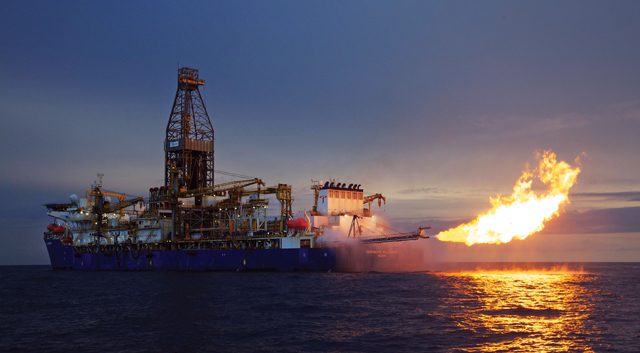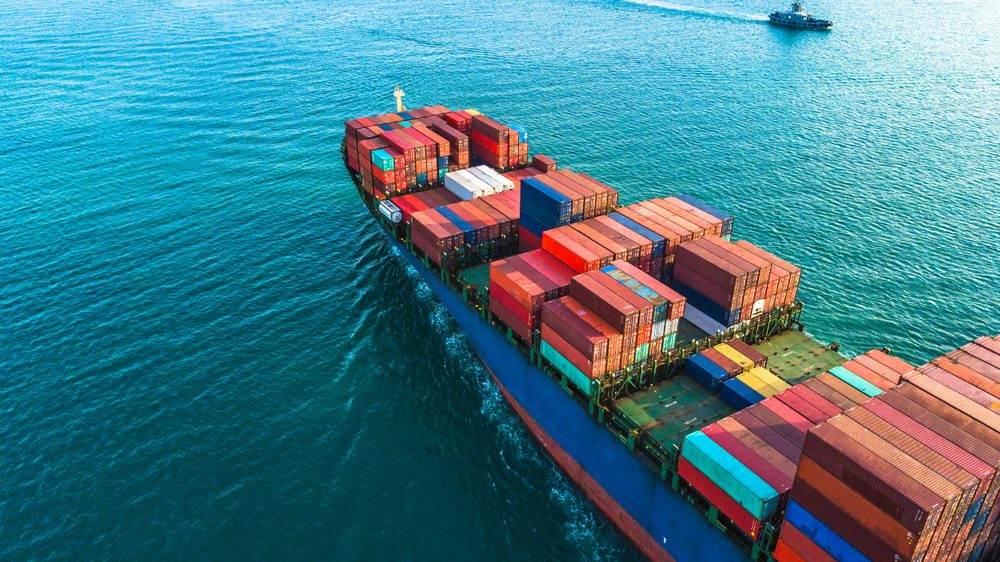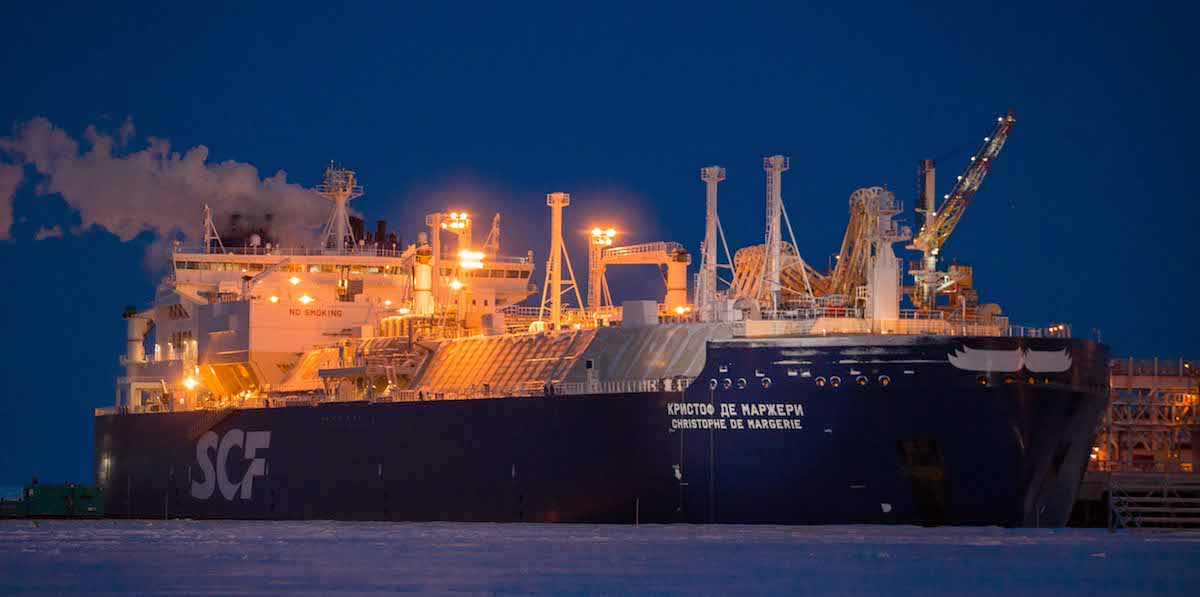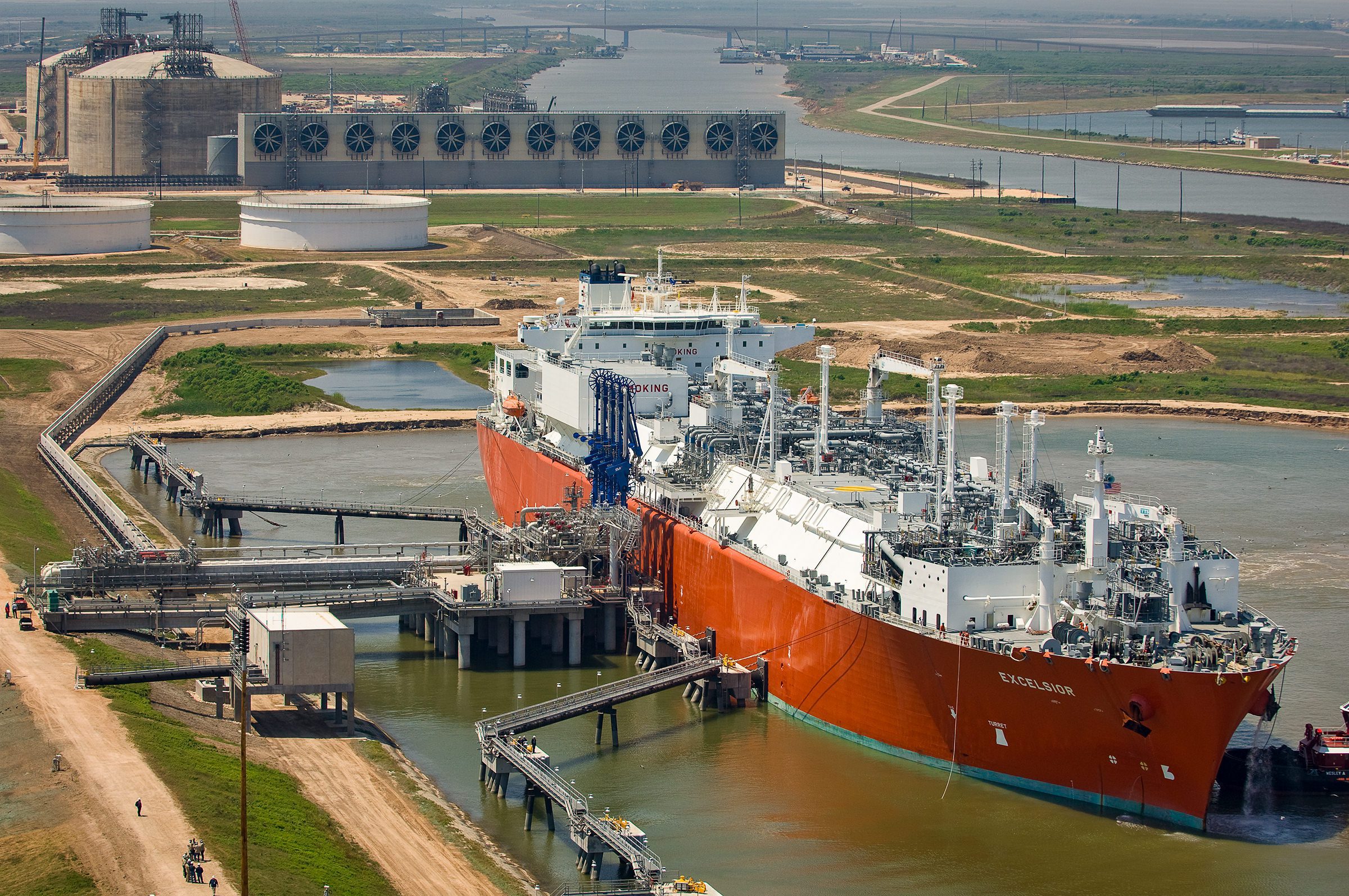Transocean’s Deepwater Millennium performs an accelerated well test at Anadarko’s natural gas wells offshore Mozambique. Photo courtesy Anadarko Petroleum
Oct. 15 (Bloomberg) — More than half a dozen yellow tower cranes planted in the hillside above Mozambique’s capital are visible from a single vantage point at Anadarko Petroleum Corp.’s office. There are more poised along the beachfront in the other direction.
“That’s anticipation,” said John Peffer, country manager for The Woodlands, Texas-based oil and gas explorer.
Peffer’s referring to the prospect of developing the world’s largest natural-gas discovery in a decade off Mozambique’s northern coast. It’s a resource that may help the economy in one of Africa’s poorest countries grow 10-fold by 2035, according a Standard Bank Group Ltd. report.
The trouble is Anadarko and Italian explorer Eni SpA, which have found gas in a neighboring block, can’t start development until the government completes legislation setting the terms for exports. If the law isn’t signed this year, it may be delayed further by shifts in the political landscape after presidential and parliamentary elections today.
“A good decree law provides investors, financiers and LNG buyers with an improved risk profile,” said Peffer. This may “benefit Mozambique significantly as it competes globally for high-value markets against established suppliers,” he said.
Filipe Nyusi, candidate for the Front for the Liberation of Mozambique, or Frelimo, which has ruled since 1975, is expected to win the presidency with more than 55 percent of the vote, Mark Rosenberg, senior Africa analyst for New York-based Eurasia Group, said in an Oct. 9 note.
Chill Gas
A shift is expected in parliament, where the Mozambique Democratic Movement, or MDM, will probably displace the Mozambican National Resistance, or Renamo, which fought a civil war against Frelimo, as the biggest opposition party, he said.
Anadarko had three employees in Mozambique in 2007, compared with 1,800 today, including contractors, according to Peffer. That may grow to about 10,000 once construction starts on plants to chill the gas into liquefied natural gas, or LNG, for export.
Mozambique’s revenue may reach as much as $212 billion over the life of the project, based on 45 trillion cubic feet from Anadarko’s Area 1, Standard Bank said in a July 31 study. That’s less than half of the total estimated resource.
Area 1 and Italian explorer Eni SpA’s Area 4 combined hold technically recoverable reserves of 120 trillion cubic feet, according to industry consultant Wood Mackenzie.
Exploration Drilling
The company has conducted exploration drilling for five straight years, “which ends in January, and requires the decree law to provide the legal and contractual framework to progress the project towards final investment decision,” Peffer said in an interview in his office in Maputo, the capital.
If developed to the full, Mozambique may become the world’s third-largest exporter of LNG, behind Qatar and Australia, according to a website for the project. That may transform a country that ranks 178th out of 187 nations in the latest United Nations Human Development Index.
“Government is doing more now in terms of wanting to increase the government take,” Adriano Nuvunga, director of Maputo’s Center for Public Integrity, said in an Oct. 3 interview. “Companies, they’re pushing hard that all decisions are made quickly. Government is trying to be cautious.”
2018 Deadline
Last year Luca Bertelli, Eni’s executive vice president of exploration, said it would be “very challenging” for Mozambique to meet a 2018 deadline to be able to ship the gas. Work hasn’t started in Mozambique and building an LNG plant can take four to six years.
LNG projects in Africa, Canada and Australia may face cancellation as global demand slows and 40 million metric ton of exports from the U.S. come online, Goldman Sachs Group Inc. analysts said in an Oct. 2 report.
Mozambique will probably be among the world’s competitive LNG projects under consideration, Goldman said.
“There is a strong will to get the decree law done, because the government realizes that it’s needed by the international oil companies to reach final investment decision,” said Anne Fruhauf, southern Africa analyst at New York-based risk adviser Teneo Intelligence.
If it isn’t finished by December, the decree law will be delayed by at least three months because of government priorities, including the presidential handover and the budget, she said.
Sticking points in negotiations over the decree law include the time before terms can be renegotiated, Nuvunga said. The companies have requested 30 years, while the government has accepted 15, and parliament has said it should be 10 years.
“There’s a need to be balanced in terms of time sensitivity but also have the necessary time to negotiate a better deal for the country,” he said. “Whether that will travel down to the poor, that’s a different story. In the meantime there is time pressure. All issues are time sensitive.”
(c) 2014 Bloomberg.
Editorial Standards · Corrections · About gCaptain
This article contains reporting from Bloomberg, published under license.

 Join The Club
Join The Club











